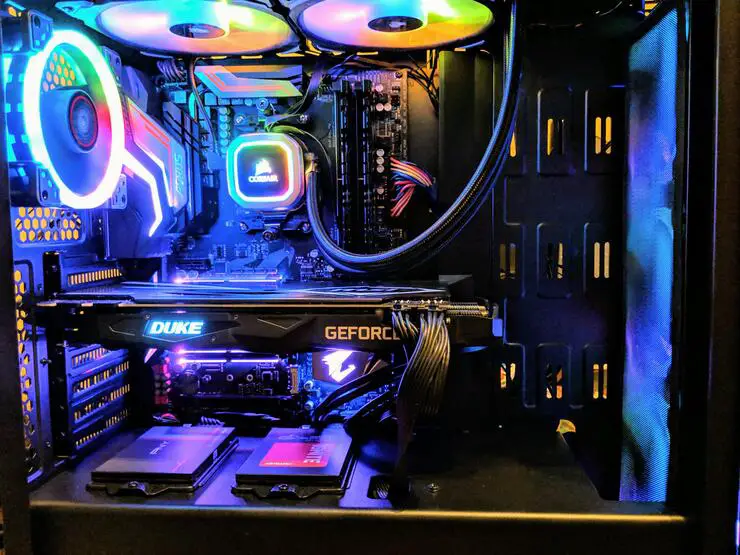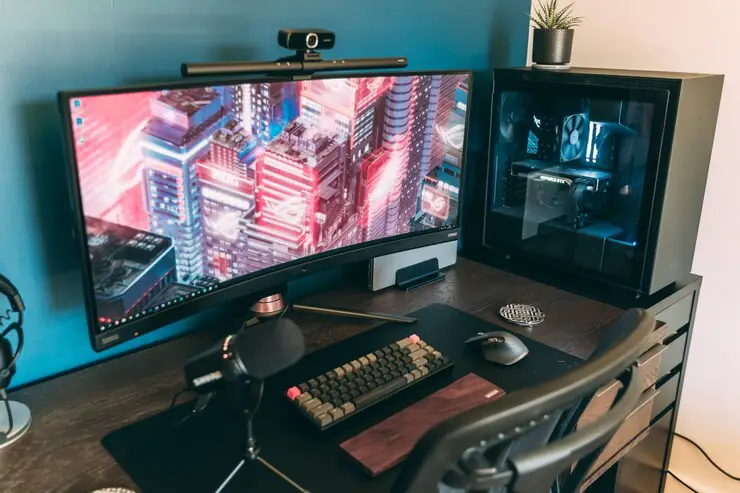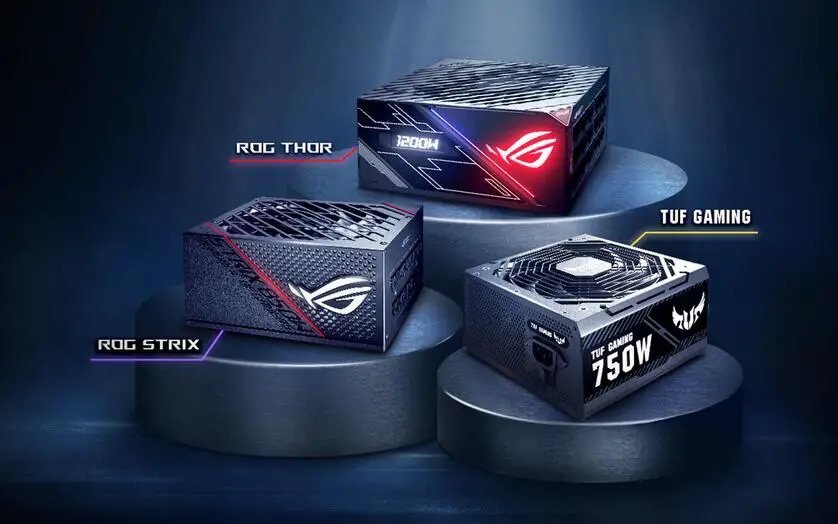Here’s a question we will answer in this article, and it can help you learn more about how to pick out your next gaming computer. The good news is most modern computers have an energy efficiency rating (EER) of 10 or higher, which means they are using 10% less power than older PCs.
This is important for gamers because they need high-end components to provide them with the best performance possible. We will go into detail about what factors affect how much electricity a computer uses, as well as some considerations for picking out your next gaming rig!
How Much Power Does a Gaming PC Use?
In recent years, gaming has become an increasingly popular pastime.
In fact, it is now one of the top three American hobbies after reading and sports watching!
The growth in this new hobby brings up a question about how much energy your computer actually uses when you’re playing games while plugged into power versus on battery only.
Computing devices use electricity to operate; however, they can vary based on which features are installed as well as their usage frequency- so let’s break down some numbers:
A laptop typically consumes 60 W per hour with an occasional peak load at 180W – that translates to 1800 kWh annually (or $180). Meanwhile, a desktop PC will require somewhere between 300 – 500 watts per hour depending on its hardware specifications–this means anywhere from 6000 to 9000 kWh annually.
When we talk about gaming PCs, then our estimates show that it could easily take more than 500 watts while you’re plugged in–on a battery-only usage scenario, power consumption will fall between 100 and 200 watts. Keep in mind that these estimates depend on how high of settings you have your game set at as well as whether or not you are using the computer’s speakers or headphones.
How Much Energy Does a Gaming PC Use on an Hourly Basis?
A typical gaming PC will use on average 550 watts. The wattage required to run the computer fluctuates depending on what you are doing- whether it is running a game or browsing the internet.

How Many Watts Does Gaming Computers Use in One Day?
On average, it takes roughly 20 hours of playing video games for your computer to use one kilowatt.
How Many Watts Does a Gaming PC Use to Charge?
The power required for charging electronics is almost always less than that used by the device itself in order to operate it, with some devices only requiring about one percent of the energy needed while being charged. For example, if your laptop consumes 60 watts when you are playing video games, it will only require about 0.06 of a watt to charge while plugged in and turned off–so not much at all!
So, now that we know how much power a gaming rig uses, what should you consider when picking out your next one?

What are the Important Energy Factors You Need to Address When Designing Your Gaming PC?

The first thing you need to look at is the type of graphics card. This determines how much power your PC will utilize because it has a lot to do with whether or not your computer can handle more demanding games and applications without crashing.
Next, consider what kind of peripherals are being used as well- such as external hard drives, DVD players, and graphics cards. This will decide the number of watts that are needed as well as what kind of power supply you need to get with your new computer.
As a general rule, consider using an 800-1000 watt power supply if upgrading from a desktop PC; it’s also recommended for gaming computers that have more than one graphics card.
Benchmarking Your PC or Laptop
In order to figure out how much energy your computer is using, you will need the following: a watt meter and an hour of time with no other load on the system besides what you are running. To measure which parts use more power than others, we recommend doing this on a cold start before the computer has been used for more than an hour–this is when your PC or laptop will use the least amount of power.
Here are some of the important measurements that you need to address when benchmarking your gaming PC or laptop’s power consumption.
- -Pwr Usage: measure the power usage of your computer using a wattmeter. This will be measured in watts (W).
- -System Power, Readings as Annual Fuel Cost for Laptop or Desktop PC on Average: figure out how much money you spend annually to power your system by dividing that annual cost ($/year) by the watts used per hour (W/hour).
- -Estimated Annual Cost: figure out how much money you will spend annually to power your system by multiplying that annual cost ($/year) with the number of hours per day your PC is used.
- -Power Usage on Hourly Basis: measure how many watts are being utilized by your computer on an hourly basis–this will be measured in watts (W).
- -Power Usage While Charging: measure how many watts are used to charge the device while plugged into power. This can also help determine whether or not you need a new battery for when you’re out and about.
Now that we know what energy usage is, all you need to do is figure out how much power your device uses and then make sure you have the right amount of energy when it comes to power it up.
A gaming computer can use up to 1400 kWh per year. That’s six times the power of a laptop!
Amazing isn’t it? What if you can manage that consumption by rigging up a powerful gaming PC?
All you need to do is build an effective gaming build keeping power consumption in mind. Gaming computers can be many times more expensive than laptops, but they are also much better for energy conservation.
Besides, every gaming computer is unique & requires different amounts of energy to operate. Some people may use their machine for hours a day while others only turn it on once in the morning, usually around 8 AM.
It all comes down to how much you’re using your gaming PC.
Did you find this article helpful? Want to learn more about gaming PC builds? Feel free to check us out.

